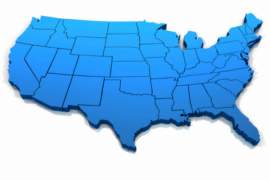
All You Need To Know About Parties in a Trust

When a trust is established, the legal document that addresses the estate in the trust lists all parties to the trust. This document is known as the trust instrument. Parties that are involved in the execution of a trust include the grantor or settler, a trustee or trustees, a successor trustee or trustees, and any beneficiaries.
The grantor or settlor is the individual that initiates the creation of a trust. This title may also be applied to a couple if both people sign the trust instrument as a settlor. The settlor designates what property is to be contained in the trust and how it is to be managed.
Then the settlor appoints any trustees to be involved and beneficiaries of the estate listed in the trust instrument. In order for the trust to be drafted, the settlor must pay the fees for the drafting of the document and any fees to the trustees of the trust. A trust created in this manner is a living trust. If the trust is established through a last will and testament, the trust is known as a testamentary trust.
The person appointed to manage the estate listed in a trust is known as the trustee. Under Common Law, a trust is also known as a fiduciary. The settlor of the trust may appoint him or herself as a trustee. In this way, they continue to manage the trust and the estate during their lifetime. There may be more than one trustee selected to execute the trust at the time of the settlor's death.
When this happens, the trust must specify how it is to be executed by the trustees whether it be having all trustees sign the trust for its execution or selecting a trustee to execute the trust if something should happen the the other trustee(s). A successor trustee is a title applied to trustees other than the settlor if the settlor is listed as a trustee.
If the trust is considered to be of a large or substantial amount, a bank or other financial institution can be appointed as a trustee by the settlor. The bank or financial institution must any and all records related to the maintenance of the trust.
These records include transactions, amendments, and any other changes made to the trust and estate listed in the trust. These records kept by the financial institution are supplied to beneficiaries after the settlor's death or a court if subpoenaed.
The person or persons that receive the assets listed in a trust are known as beneficiaries. Beneficiaries only receive the estate of the settlor after the death of the settlor. Trustees distribute the estate among the noted beneficiaries based on the terms of the trust. If the settlor is also listed as the original beneficiary, all those that then receive assets are known as remainder beneficiaries.
NEXT: Easy to Understand Overview On Trusts Governing Laws





















